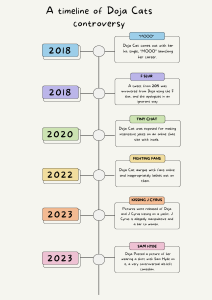New Research Suggests Pandemic Makes an Impact on Kindness
May 2, 2022
Kindness is recently a hot topic; in fact, the last decade has provided over 1,000 research papers on it. However, scientists are now taking a whole new angle in trying to discover the correlation between human kindness and the pandemic.
It’s no secret that doing something nice for others shows in the brain’s reward system, leaving anyone with a good feeling. “I think [doing an act of kindness] definitely impacts your health,” says JAHS English teacher Mrs. Zimmerman. “It makes you feel good to give kindness to others. And if you’re receiving it, that’s a booster to your mental health.” A study from the Gerontology Society of America (GSA) agrees with Zimmerman, as they established in their background research that both good acts and formal volunteering result in better health and well-being.
While most research about kindness is positive, there are also (minimal) possible downsides to what may be initially perceived as kindness. Suppose a person goes to help their neighbor, who is elderly and in need of extra care or attention. Though intentions were positive, if a person of older age feels as though their independence is being threatened, it can translate into a negative effect as it seems offensive.
While much about kindness might seem like common sense, there is new information being discovered that was previously not known or studied.
The Kindness Test was conducted in 2021 by the University of Sussex and worked in close connections with BBC. The group published a questionnaire “to help in understanding people’s views on kindness and how they relate to health, well-being, day-to-day activities, community experiences, and people’s perceptions of themselves.”
The GSA focused its research specifically on kindness and the pandemic. In their publishings, they found that “People who provided more help or support related to COVID-19 had higher mean levels of daily positive affects, lower means of negative affects, and were more satisfied with their social relationships and activities.” What’s also new is that age didn’t seem to affect the results of kindness during these trying times.
The results of the study seem to also be true for JAHS educators.
“During the pandemic, just letting people know that you’re thinking of them, saying ‘hi’ and ‘I haven’t seen you in a while’ is one of the most simple forms of showing kindness to anyone,” said JAHS Mathematics instructor Mr.Clark.
JAHS Science instructor Mrs.Hall writes via email, “Kindness in the workplace is usually small acts; like taking the time to listen [or] allowing people ahead of you in the copy line. What we see occurring between students are similar: Lend out supplies or encouraging and cheering for each other.”
All in all, it doesn’t matter who you are or where you’re from, science has proven the best medicine may actually be even the smallest of kind gestures.









